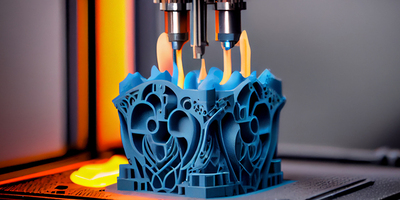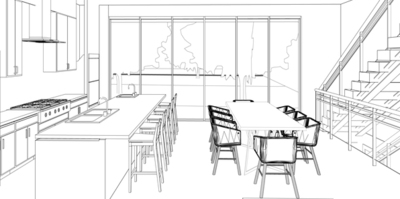HVAC (Heating, Ventilation, and Air Conditioning) refers to the technology and systems used to control the indoor environment of buildings for comfort, safety, and efficiency. HVAC systems manage temperature, humidity, air quality, and airflow in residential, commercial, and industrial settings.
HVAC engineering involves designing, installing, and maintaining heating, cooling, and ventilation systems to ensure energy efficiency, indoor air quality, and thermal comfort. Modern HVAC systems also integrate automation, smart controls, and energy management solutions for sustainable building operations.
HVAC is widely applied in commercial buildings, industrial plants, hospitals, educational institutions, and residential complexes, making it a vital field in mechanical and building services engineering.
Essential for designing comfortable, safe, and energy-efficient indoor environments.
Prepares learners for careers in mechanical engineering, building services, and energy management.
Provides practical skills in system design, installation, maintenance, and troubleshooting.
Enhances knowledge of sustainable building technologies and smart HVAC solutions.
Heating & Cooling Systems – Design and manage furnaces, chillers, heat pumps, and air conditioners.
Ventilation & Airflow – Ensure proper air circulation, filtration, and indoor air quality.
Energy Efficiency – Implement sustainable HVAC solutions to reduce energy consumption.
Automation & Controls – Integrate smart thermostats, sensors, and building management systems.
Design & Simulation – Use software tools to model HVAC systems for performance analysis.
Design and manage heating, ventilation, and air conditioning systems for residential, commercial, and industrial buildings.
Implement energy-efficient heating and cooling solutions using furnaces, chillers, heat pumps, and air conditioners.
Ensure proper air circulation, filtration, and ventilation in enclosed spaces.
Maintain healthy indoor air quality for occupant comfort and safety.
Integrate energy-efficient and sustainable HVAC solutions.
Reduce energy consumption through smart controls and system optimization.
Use software tools to model, simulate, and optimize HVAC system performance.
Analyze system efficiency, load requirements, and thermal comfort conditions.
Widely used in residential, commercial, industrial, and healthcare facilities.
Applicable for careers in mechanical engineering, building services, energy management, and HVAC consultancy.
By the end of this course, learners will be able to:
Understand HVAC principles and system components for heating, ventilation, and air conditioning.
Design and select HVAC systems for residential, commercial, and industrial buildings.
Implement energy-efficient and sustainable HVAC solutions.
Simulate and optimize HVAC system performance using software tools.
Ensure proper indoor air quality, ventilation, and thermal comfort.
Maintain and troubleshoot HVAC systems for operational efficiency.
Integrate automation and smart controls for building energy management.
Apply HVAC standards, codes, and best practices in real-world projects.
Prepare documentation, layouts, and schematics for installation and maintenance.
Develop professional skills for careers in mechanical engineering, HVAC design, and building services.
100 Hours of Class

Component Based Training
Industry Based Training
International Certifications
100% Placement Assistance
Free Certified Workshops & Seminars
Syllabus Based Classes

Component Based Training
Industry Based Training
International Certifications
100% Placement Assistance
Free Certified Workshops & Seminars
Syllabus Based Classes

Component Based Training
Industry Based Training
International Certifications
100% Placement Assistance
Free Certified Workshops & Seminars
Syllabus Based Classes

Component Based Training
Industry Based Training
International Certifications
100% Placement Assistance
Free Certified Workshops & Seminars
Syllabus Based Classes

Component Based Training
Industry Based Training
International Certifications
100% Placement Assistance
Free Certified Workshops & Seminars
Syllabus Based Classes
No: #172, Raahat Plaza,
2nd Floor, Office No: 196 & 197,
Arcot Road, Vadapalani,
Chennai - 600026.
caddschool@gmail.com
© CADD SCHOOL. All Rights Reserved. CADD SCHOOL